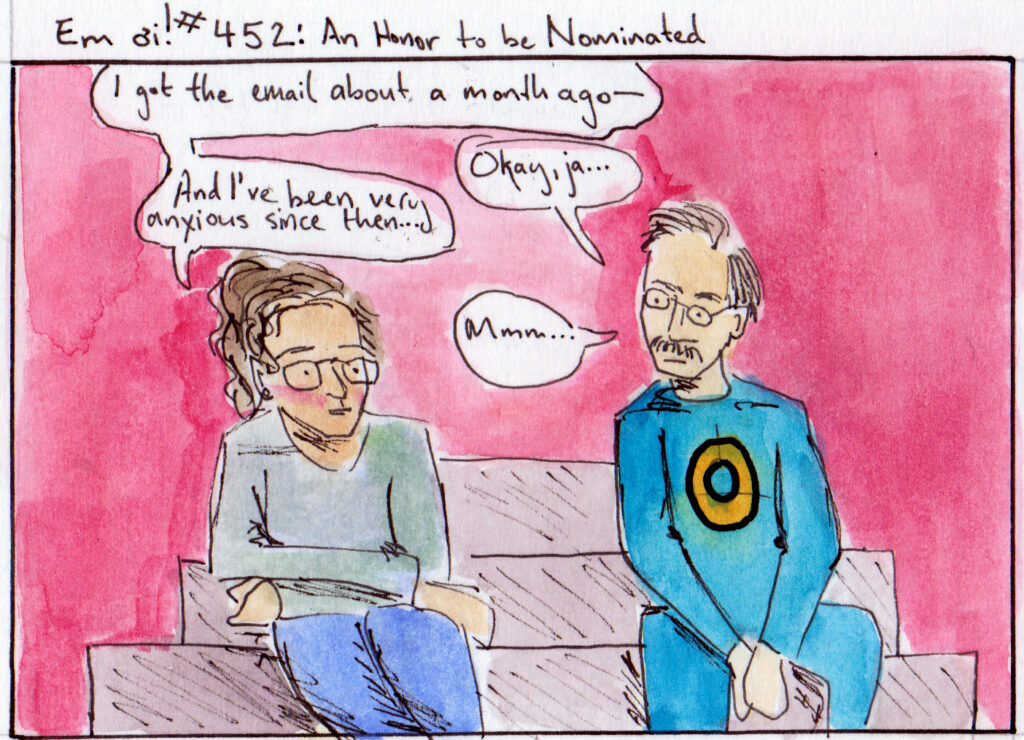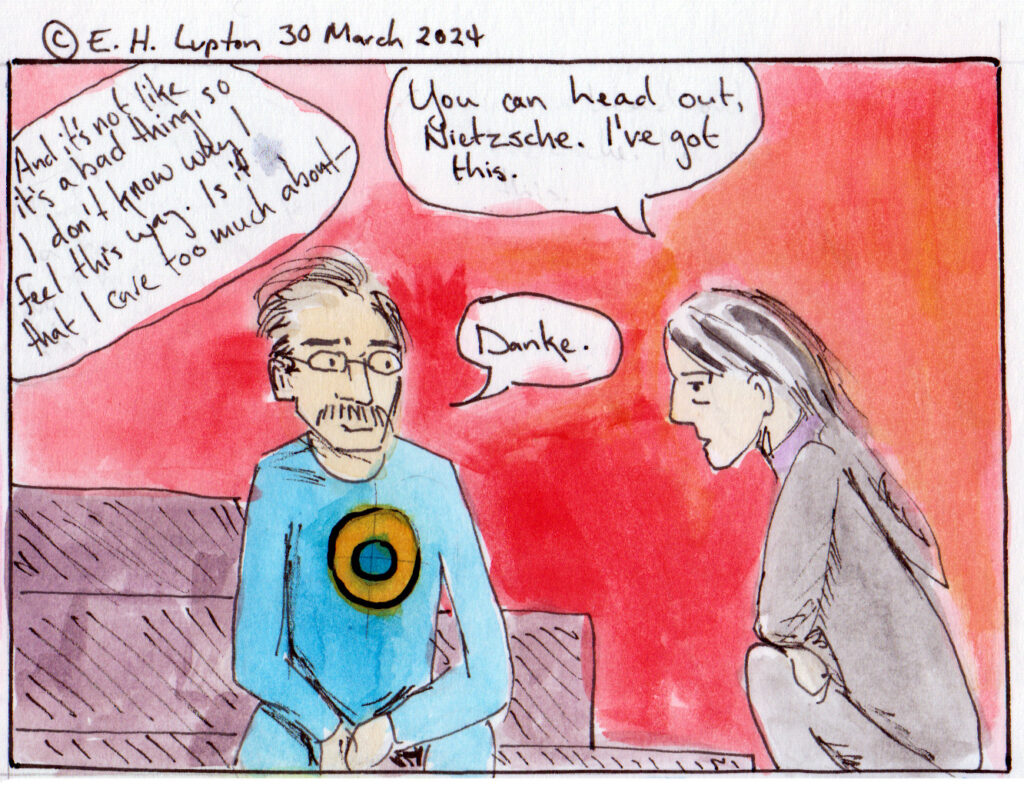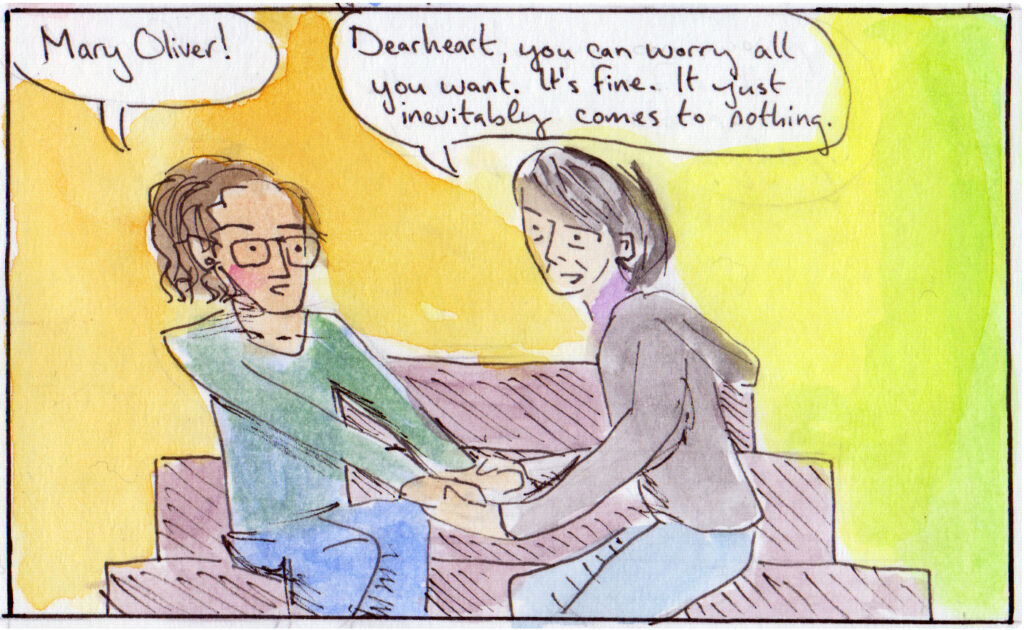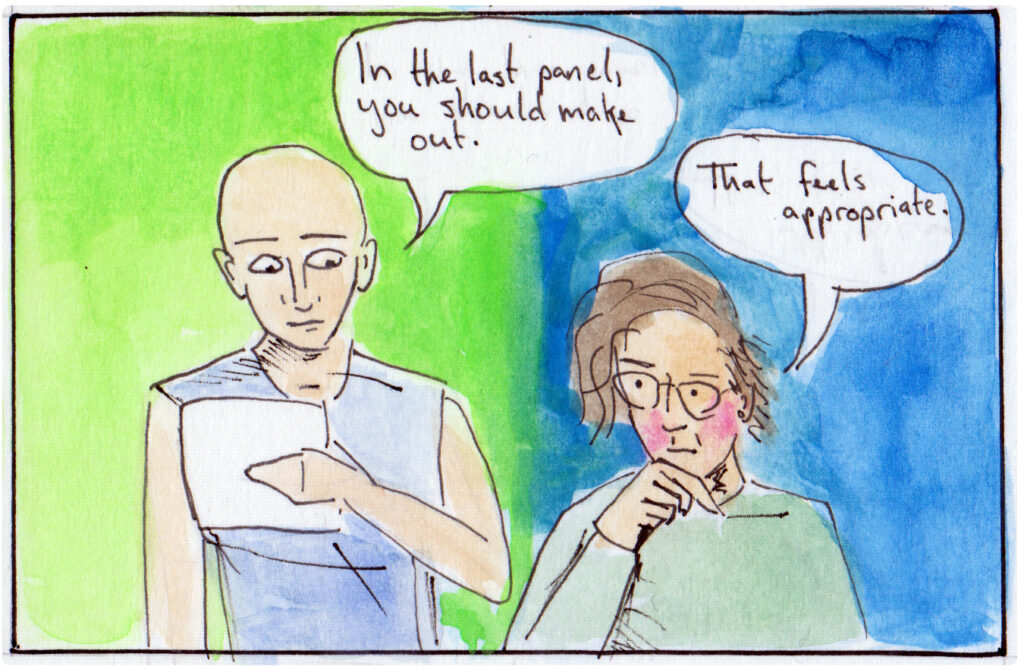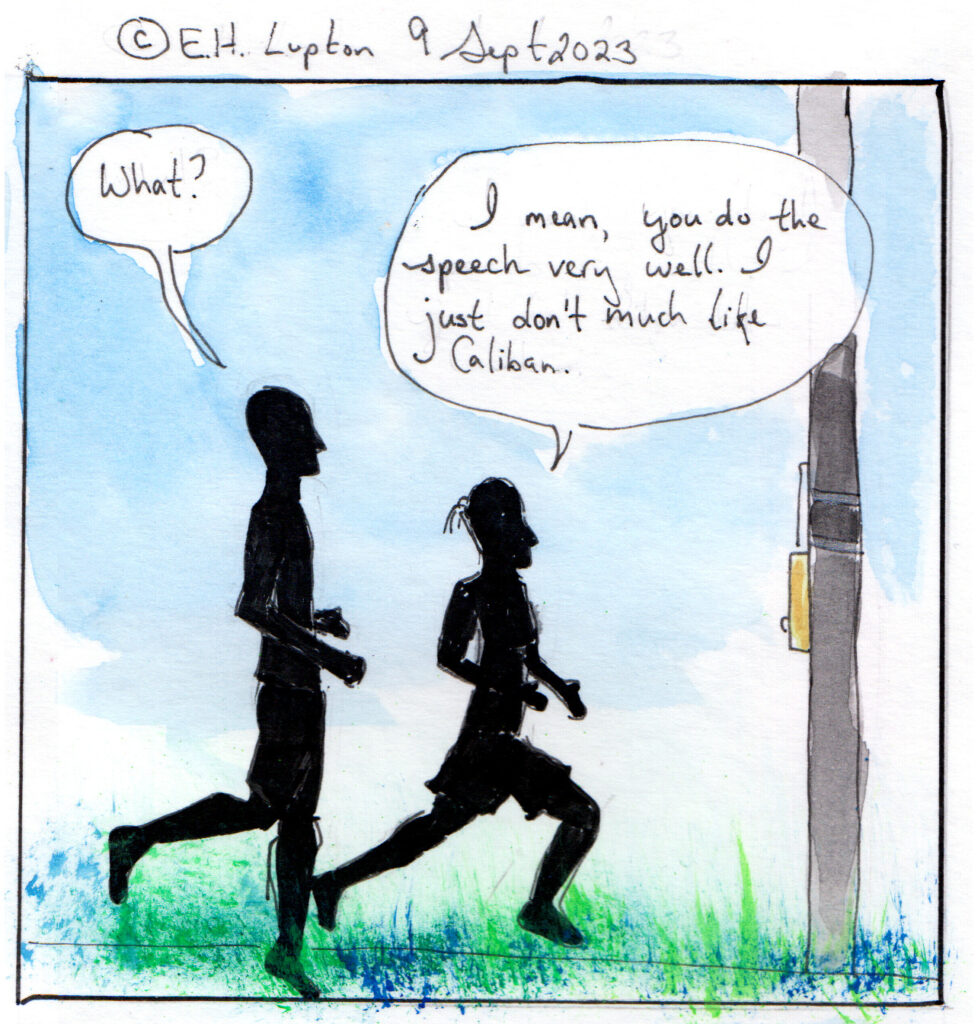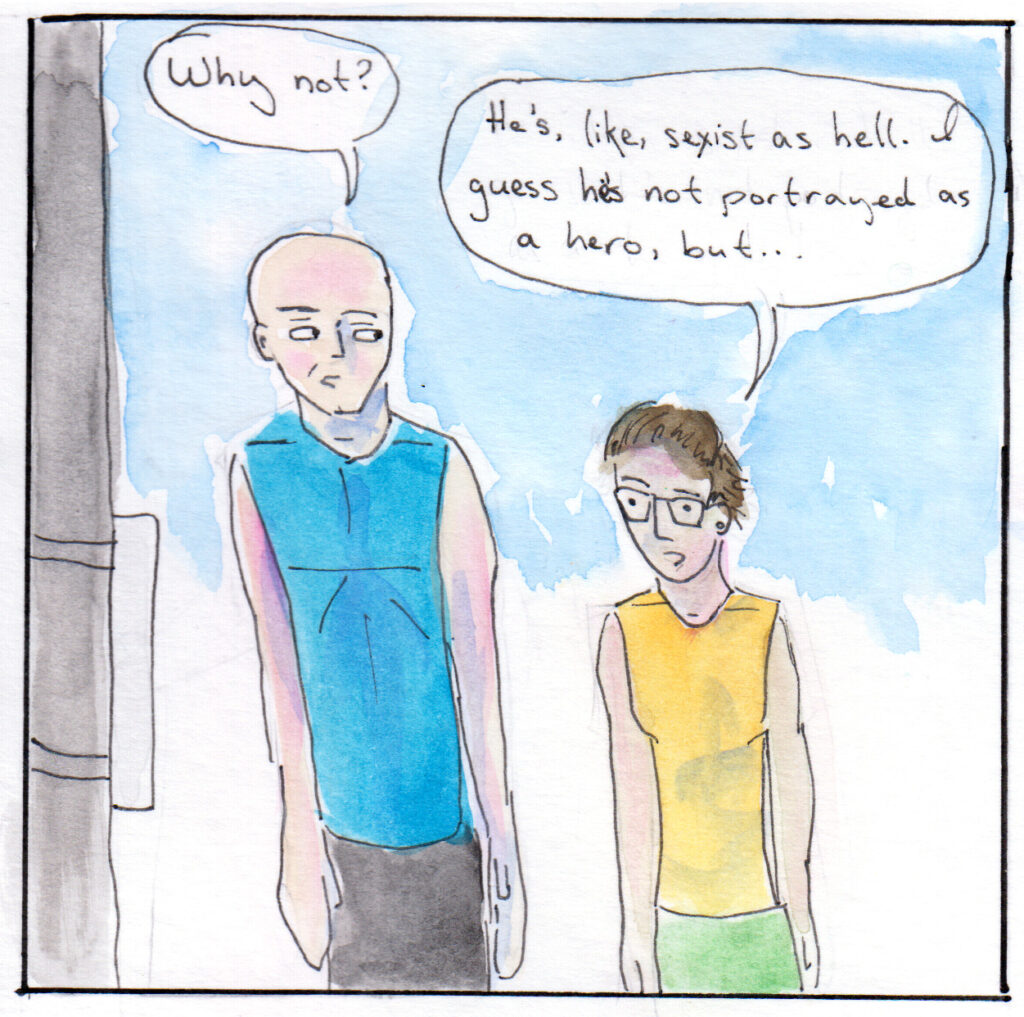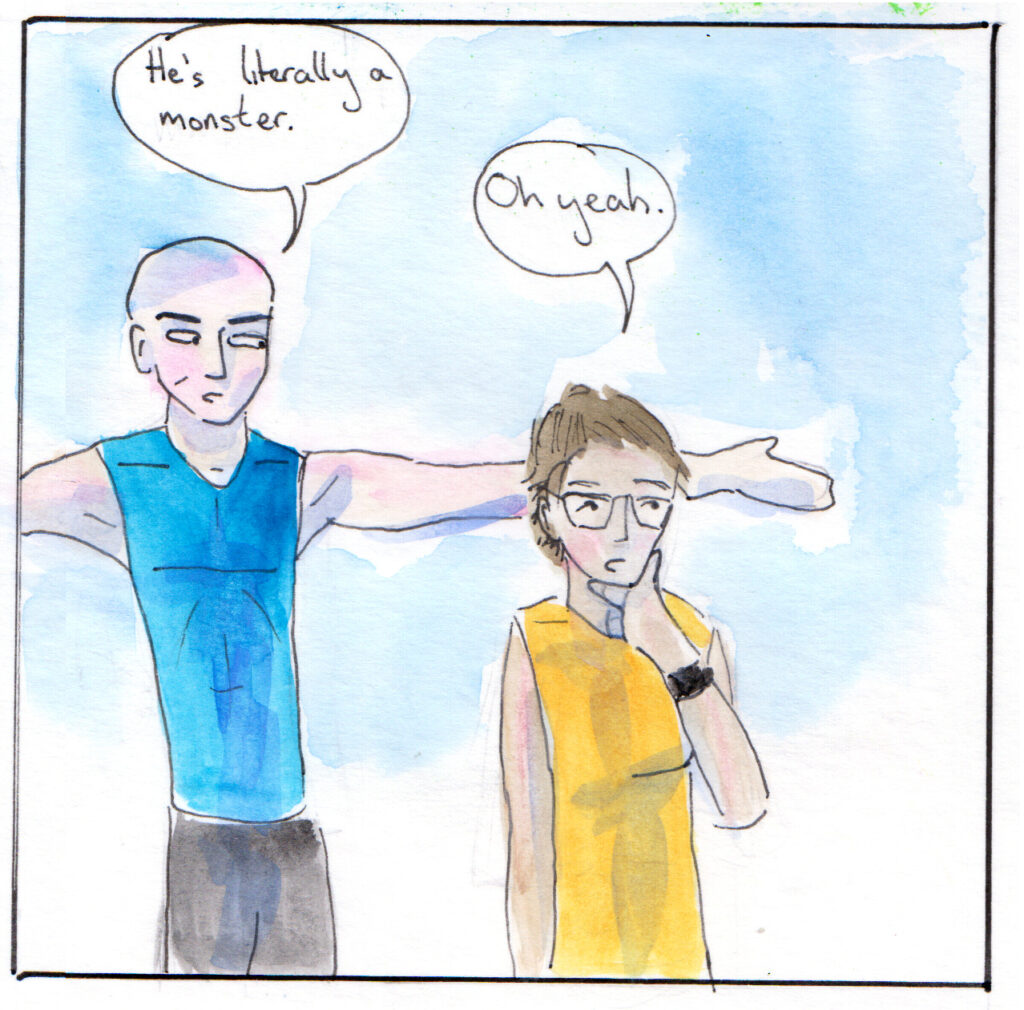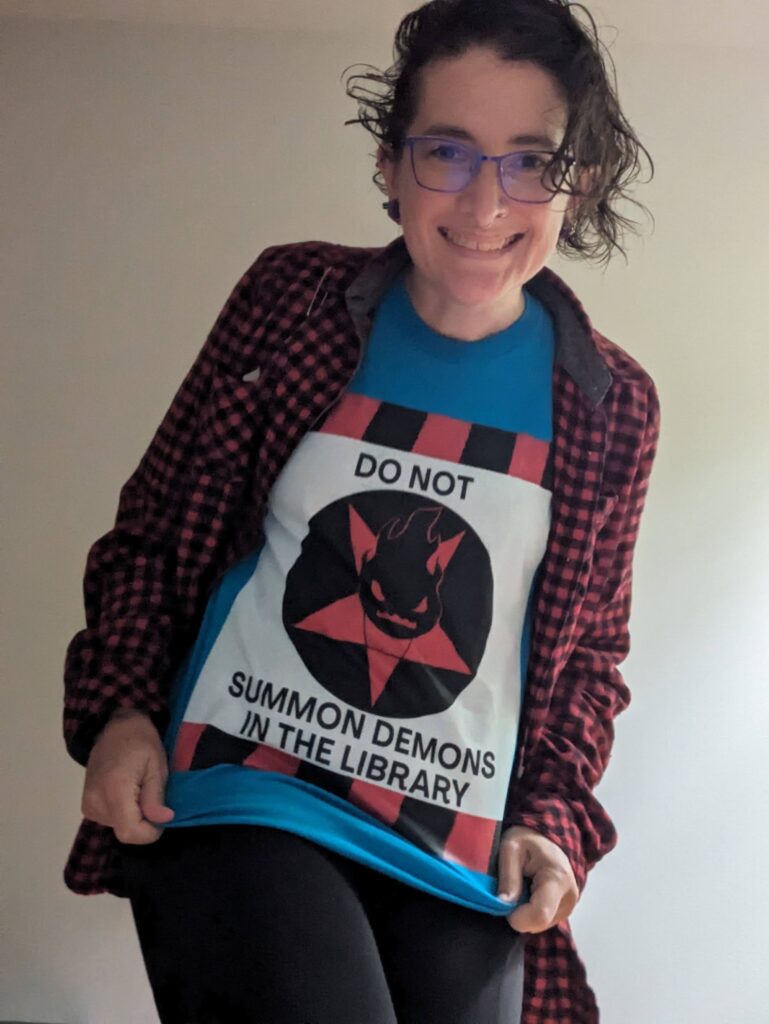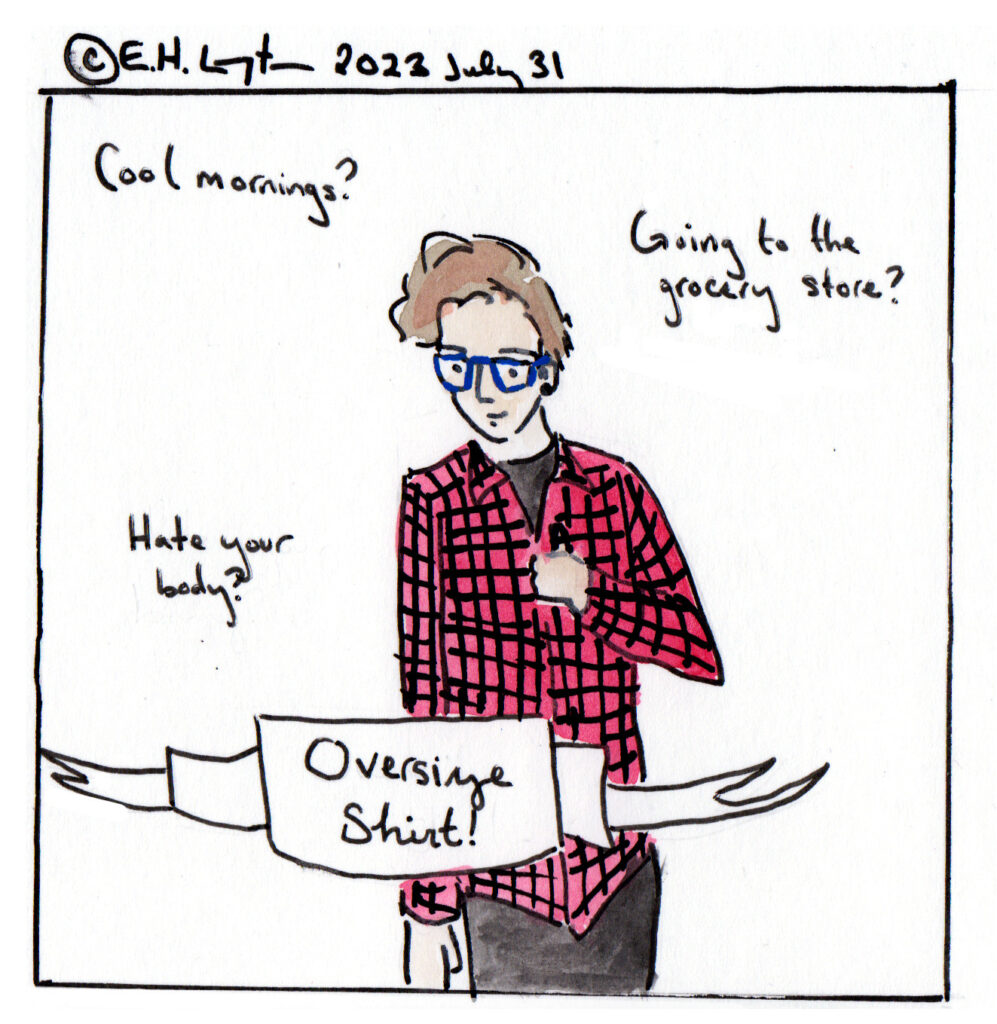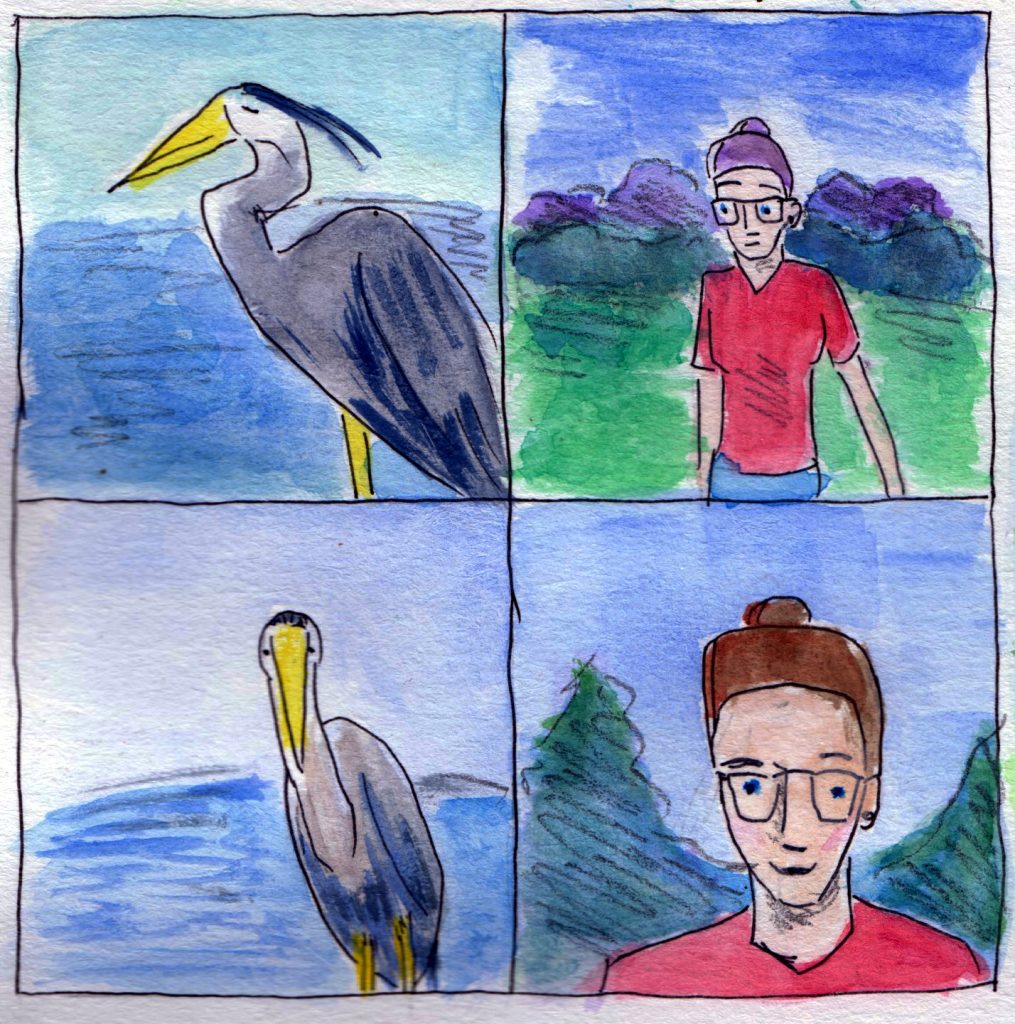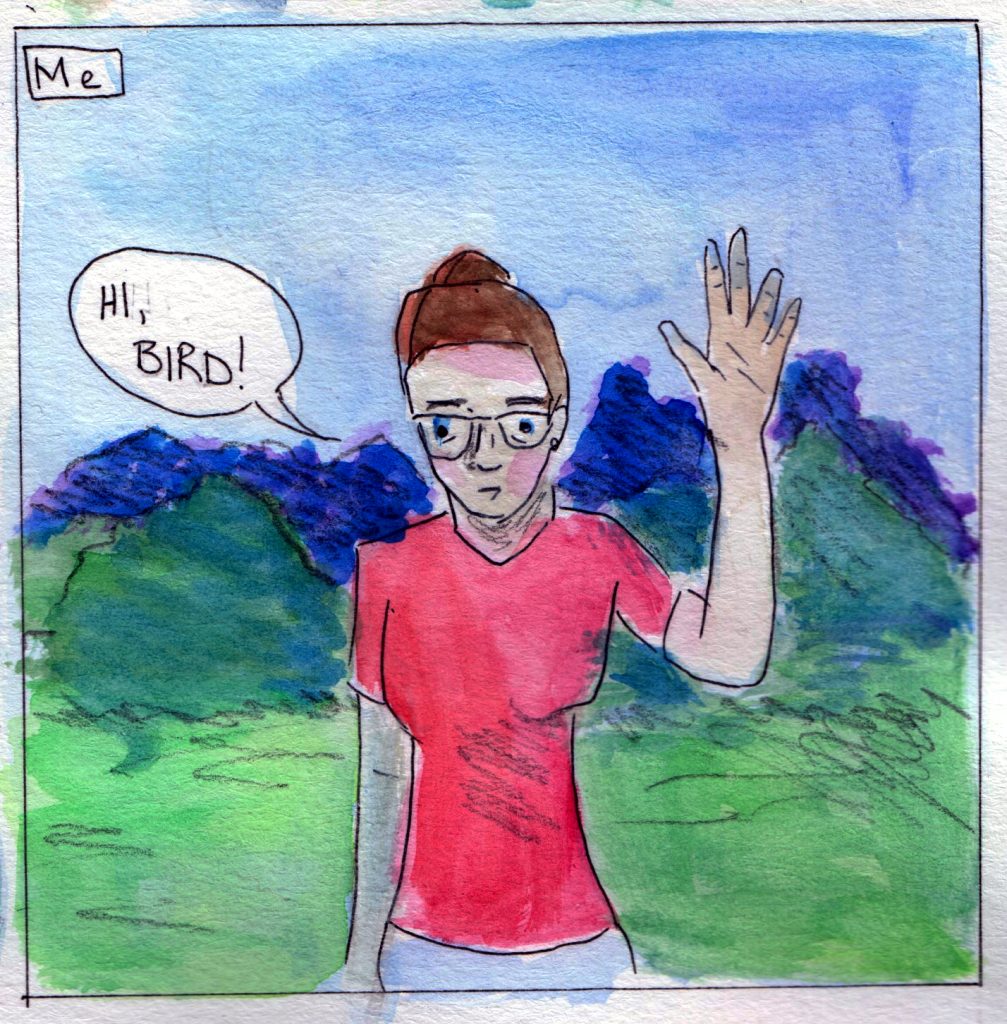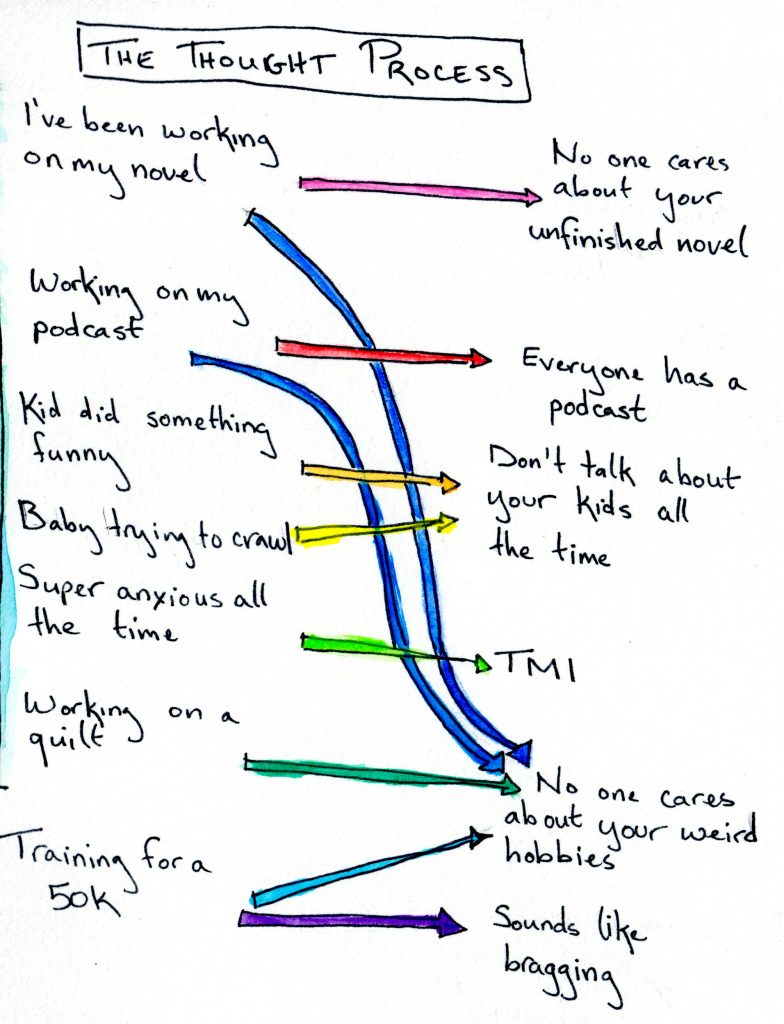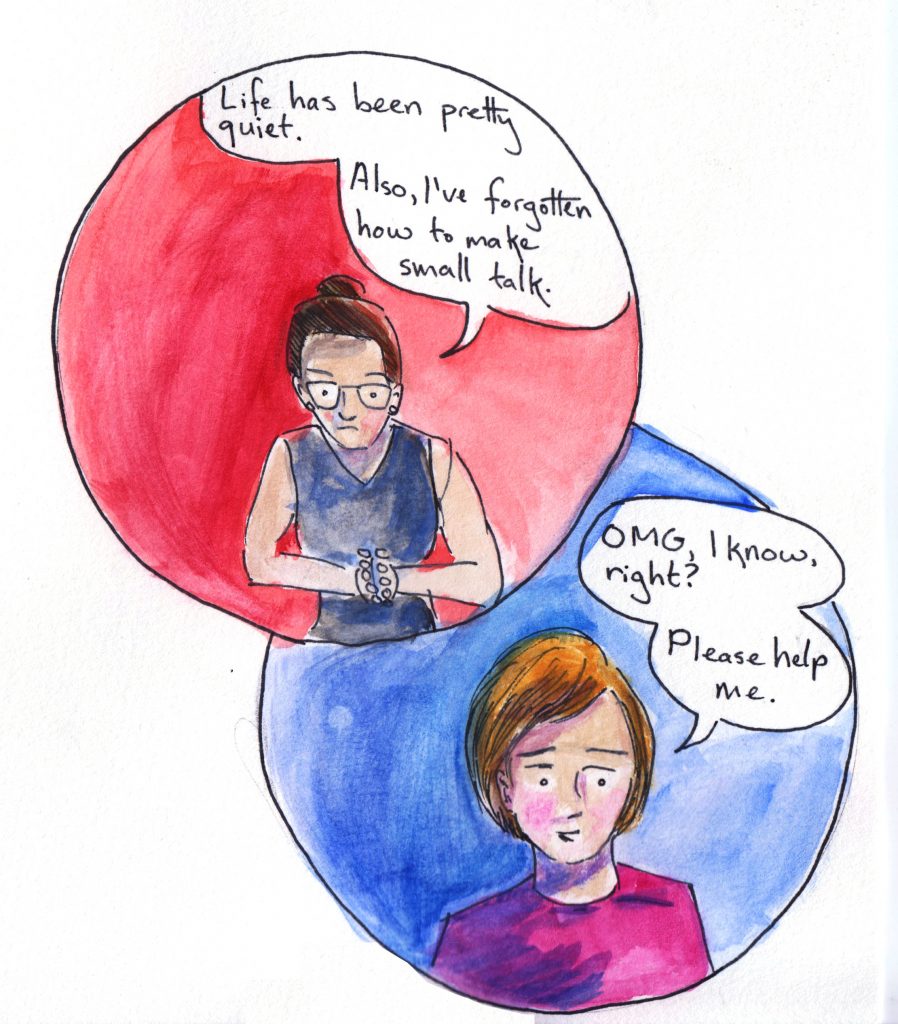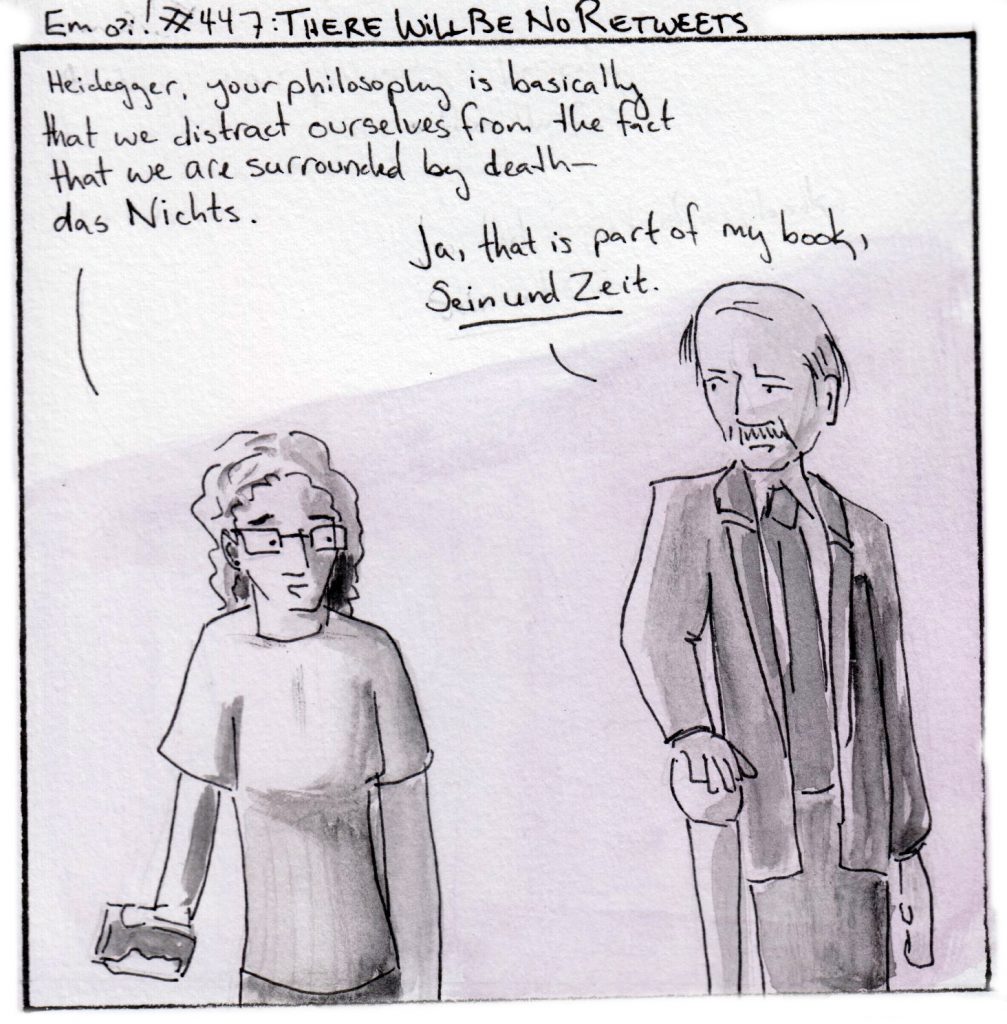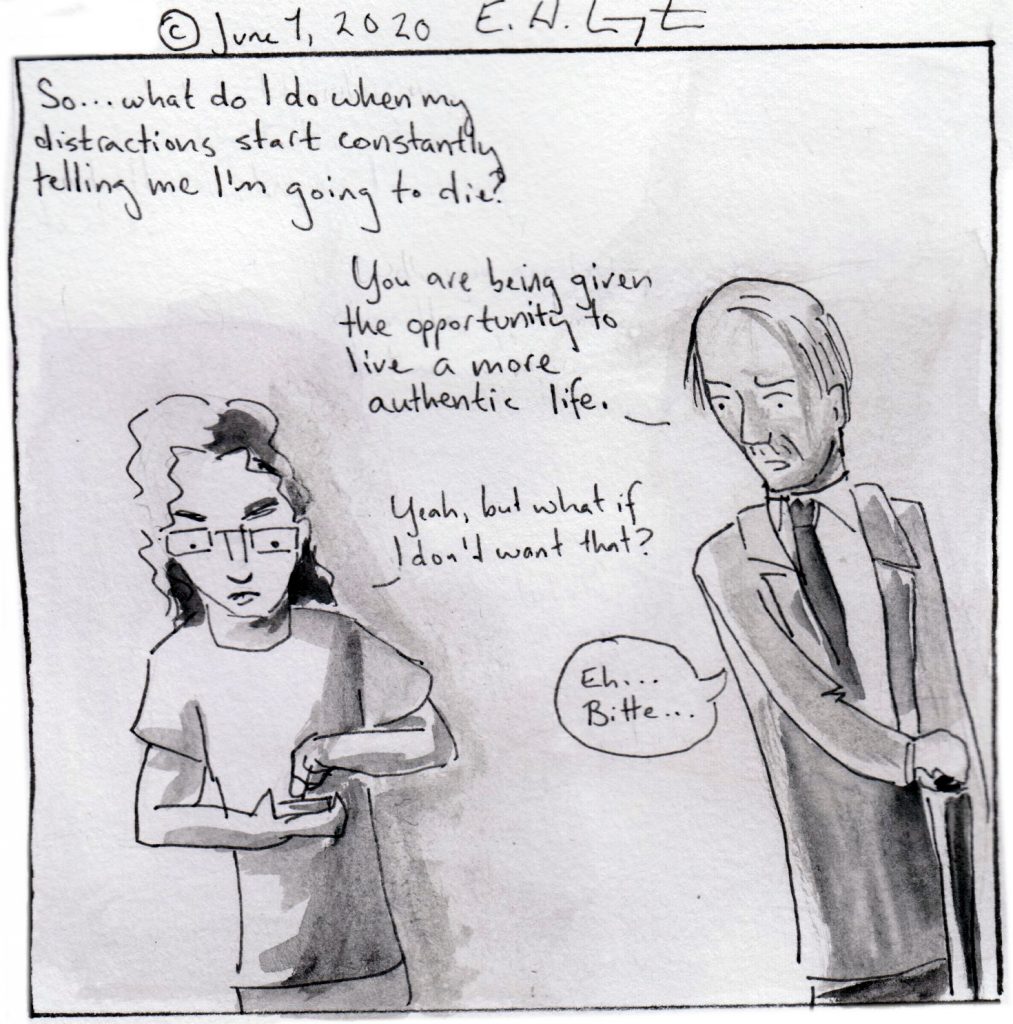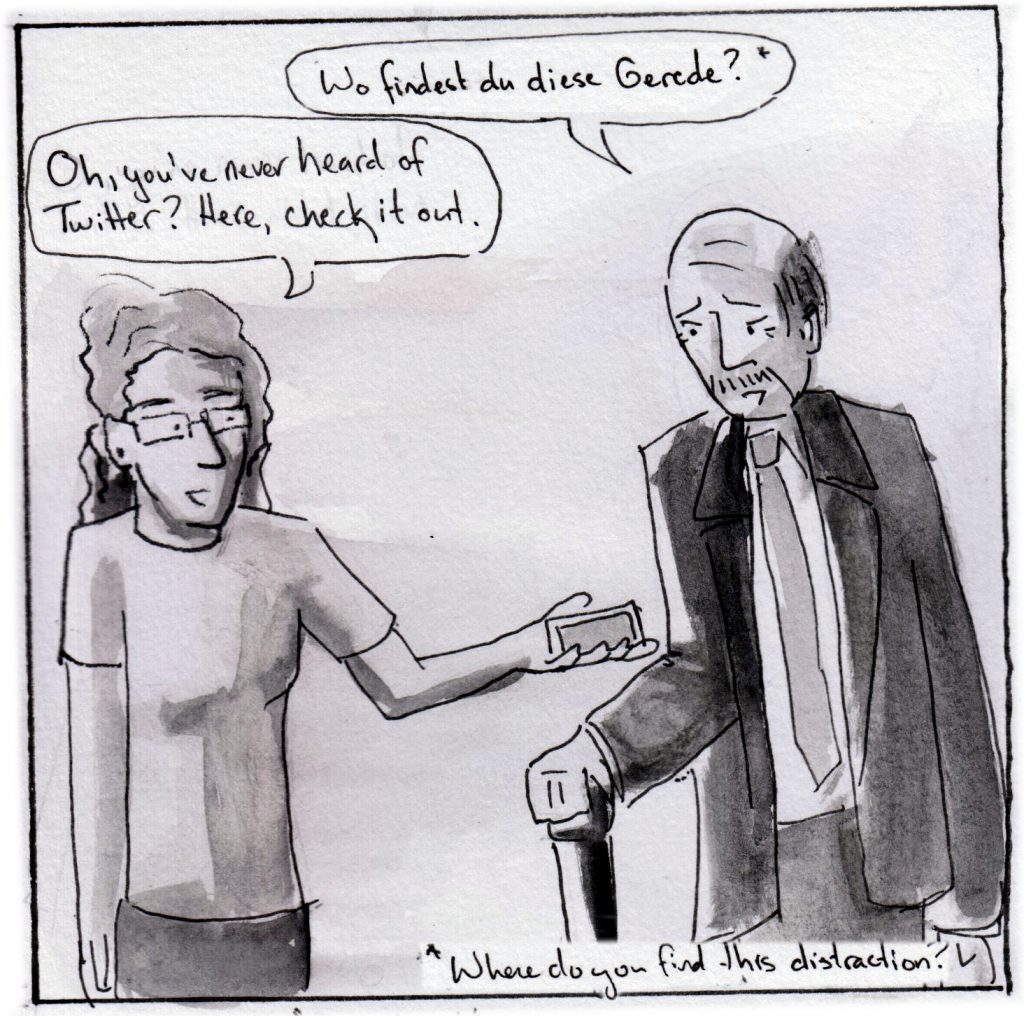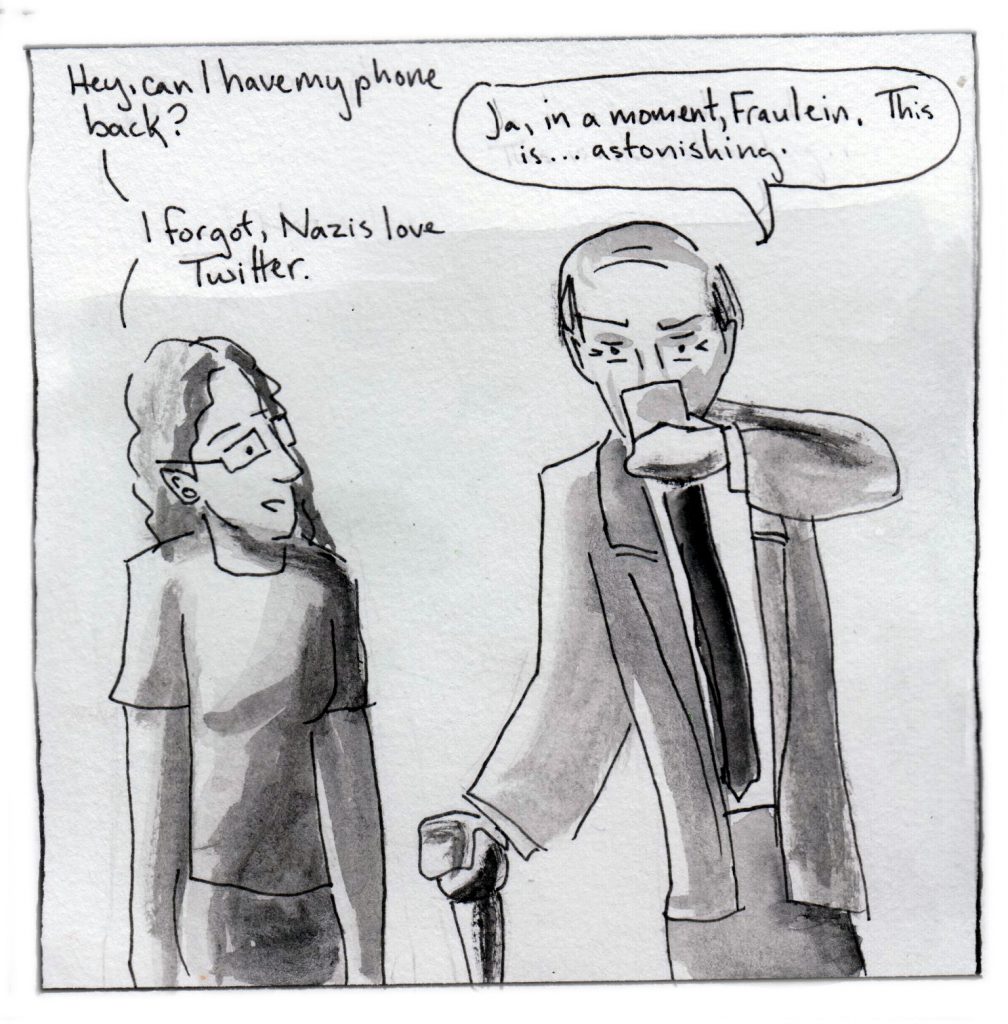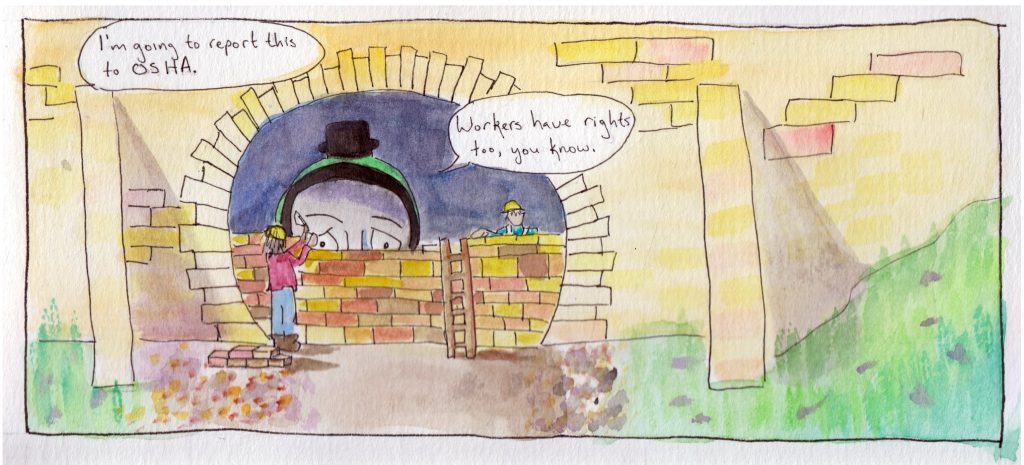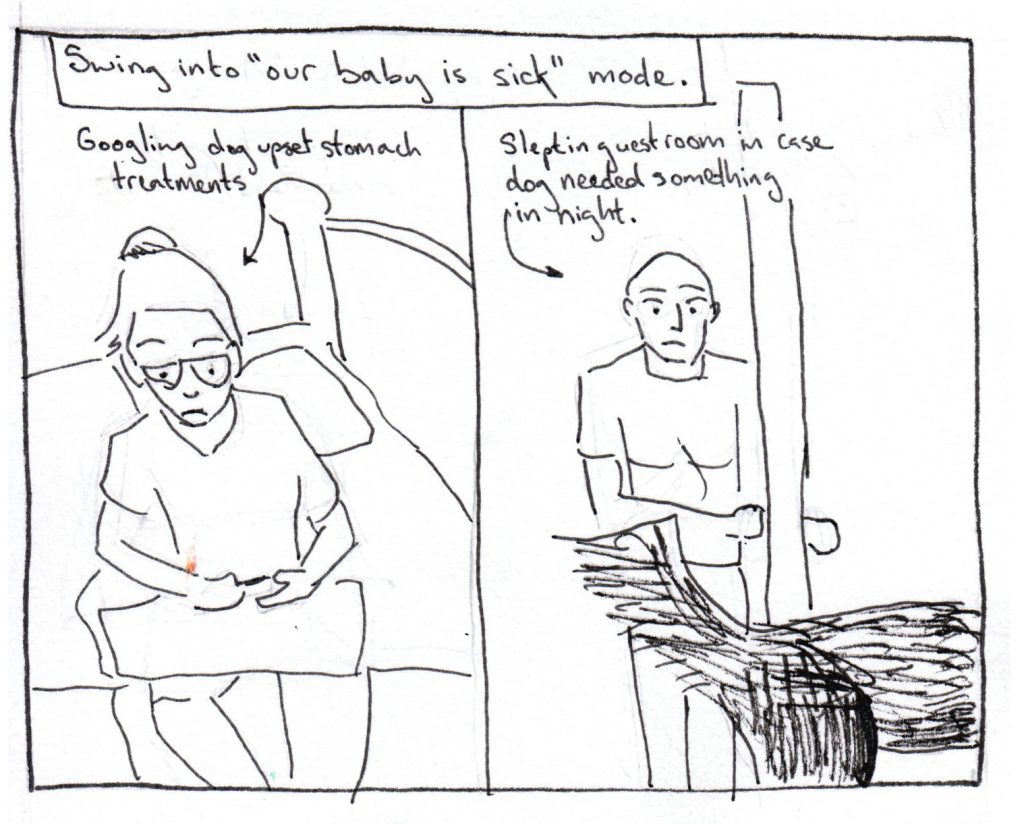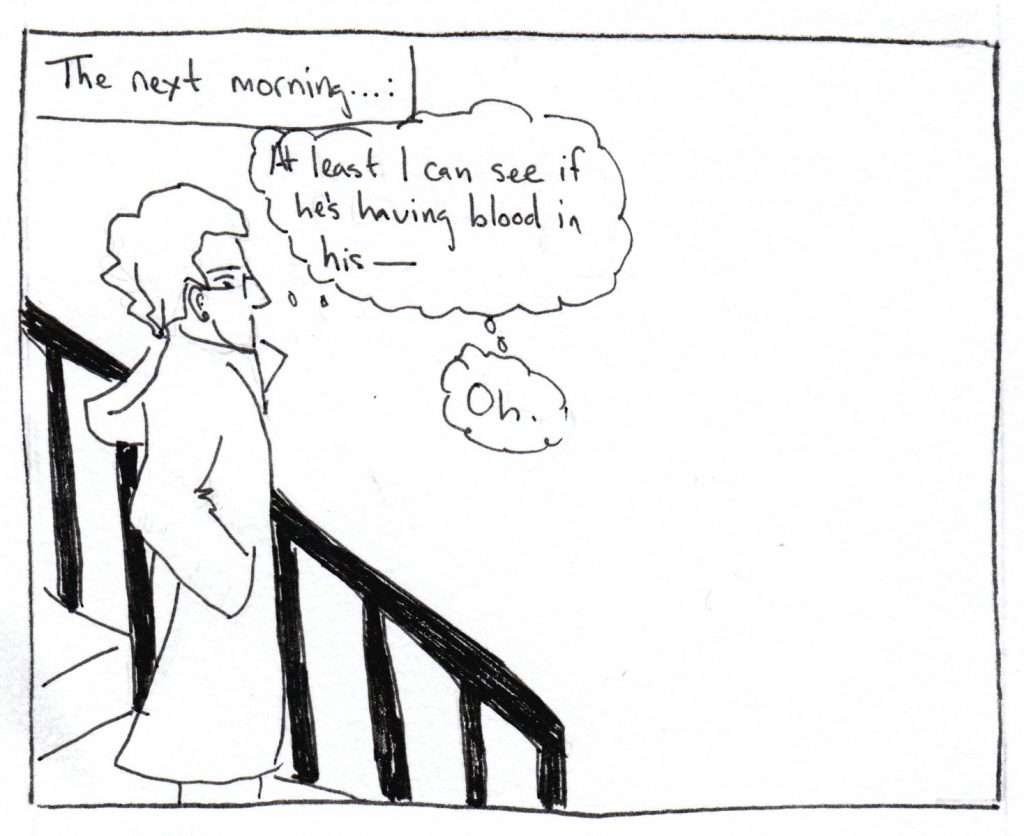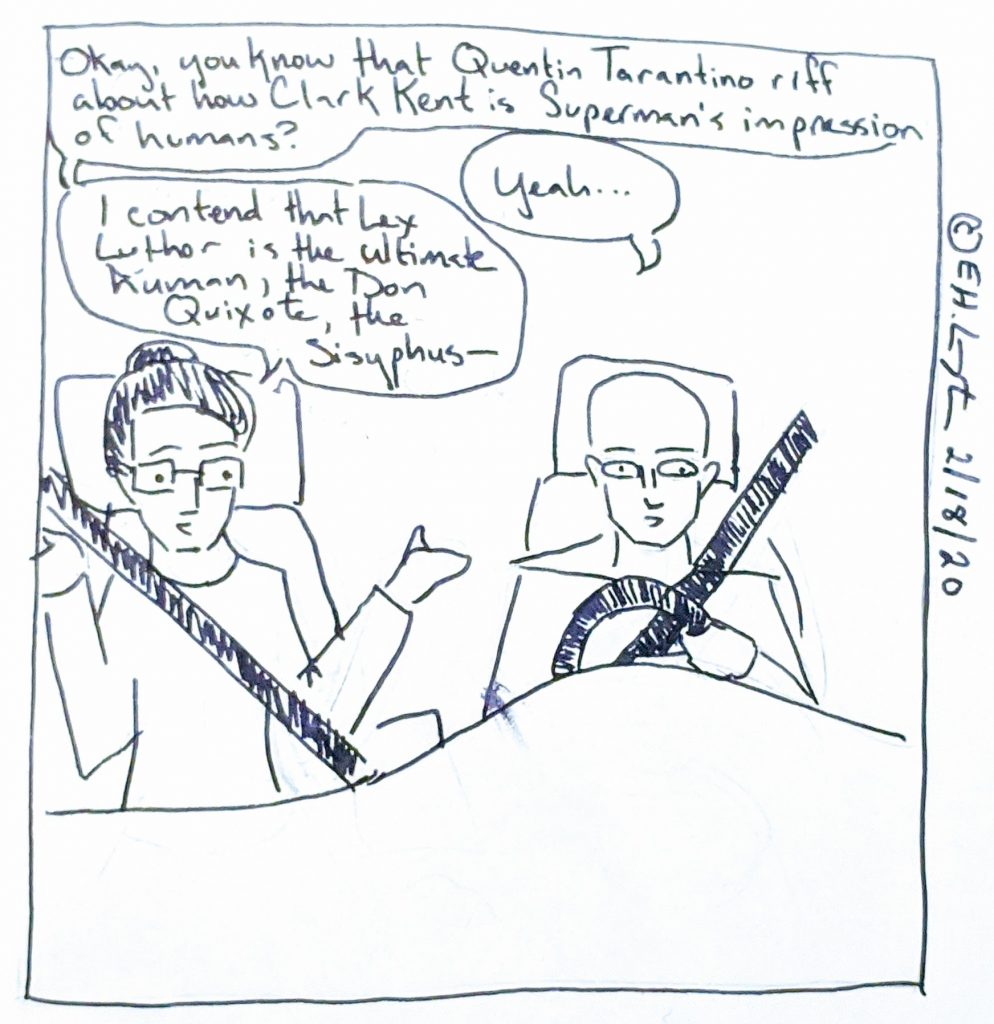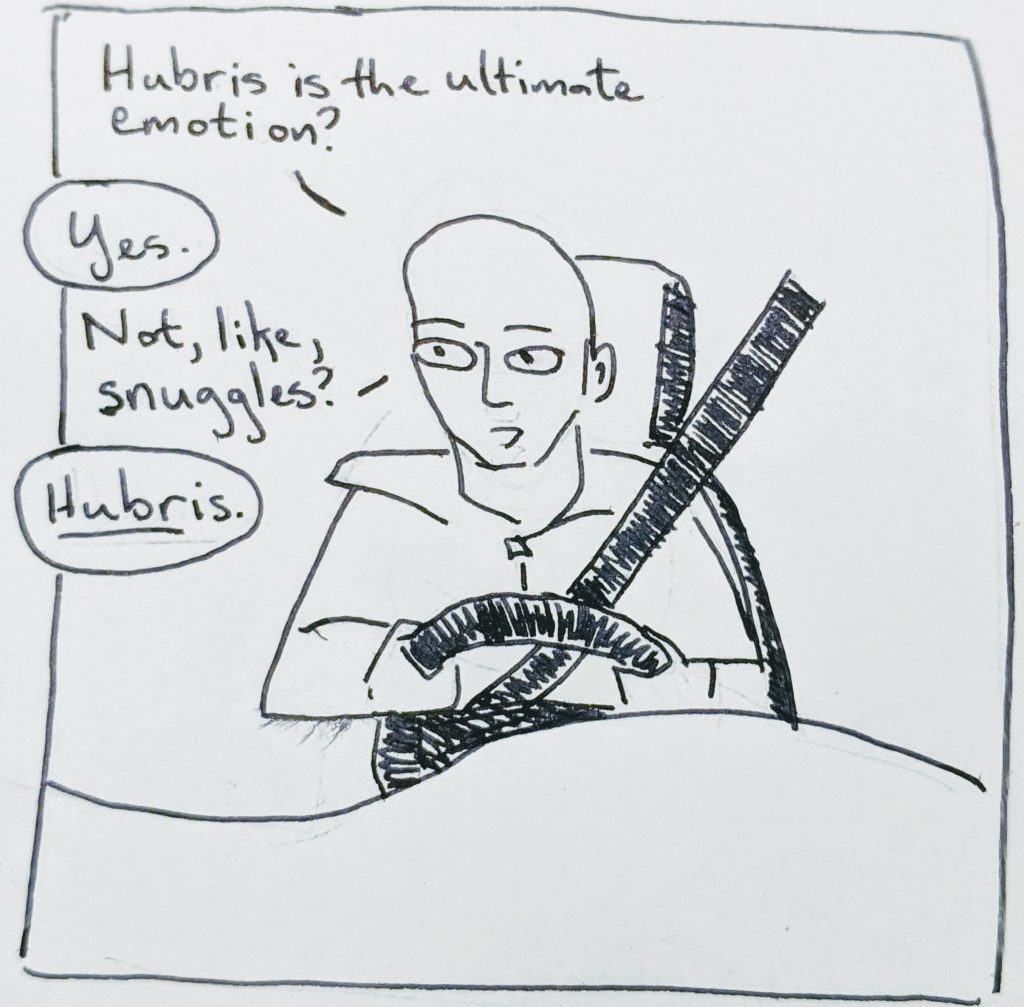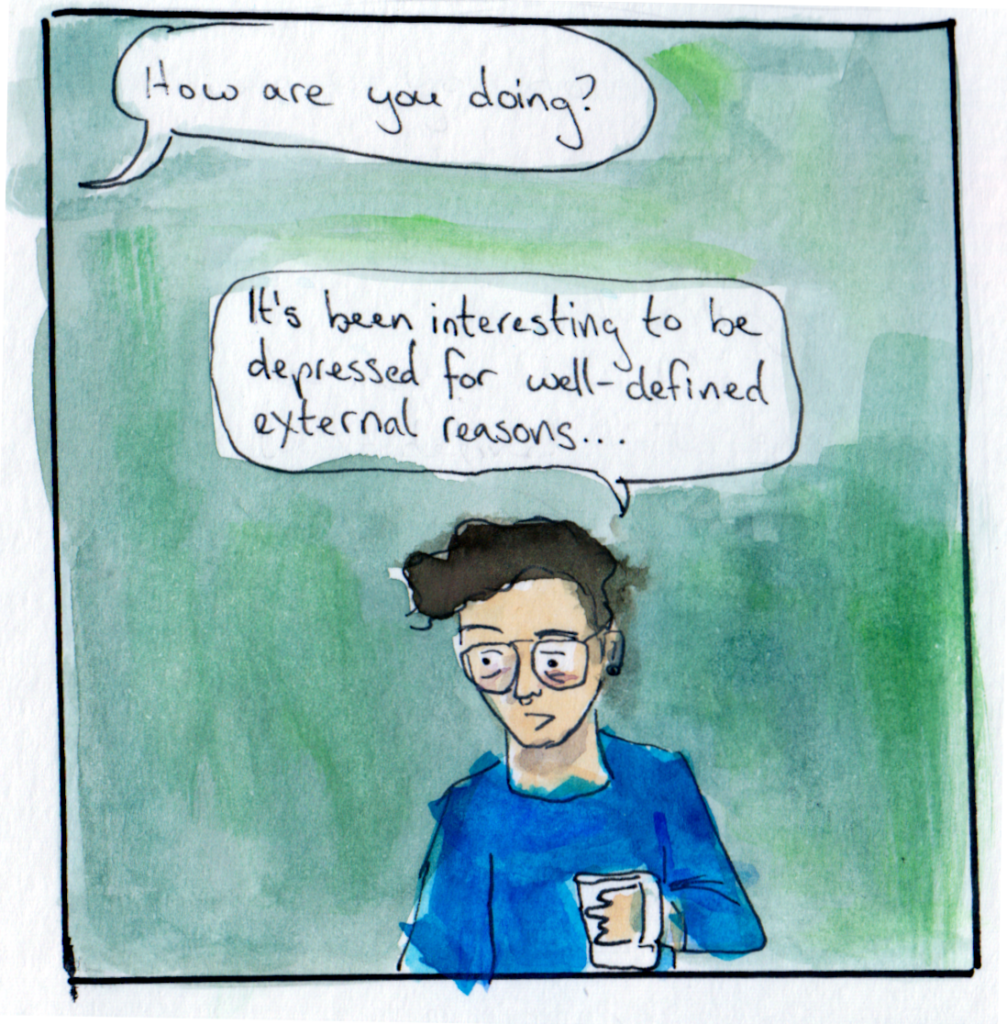
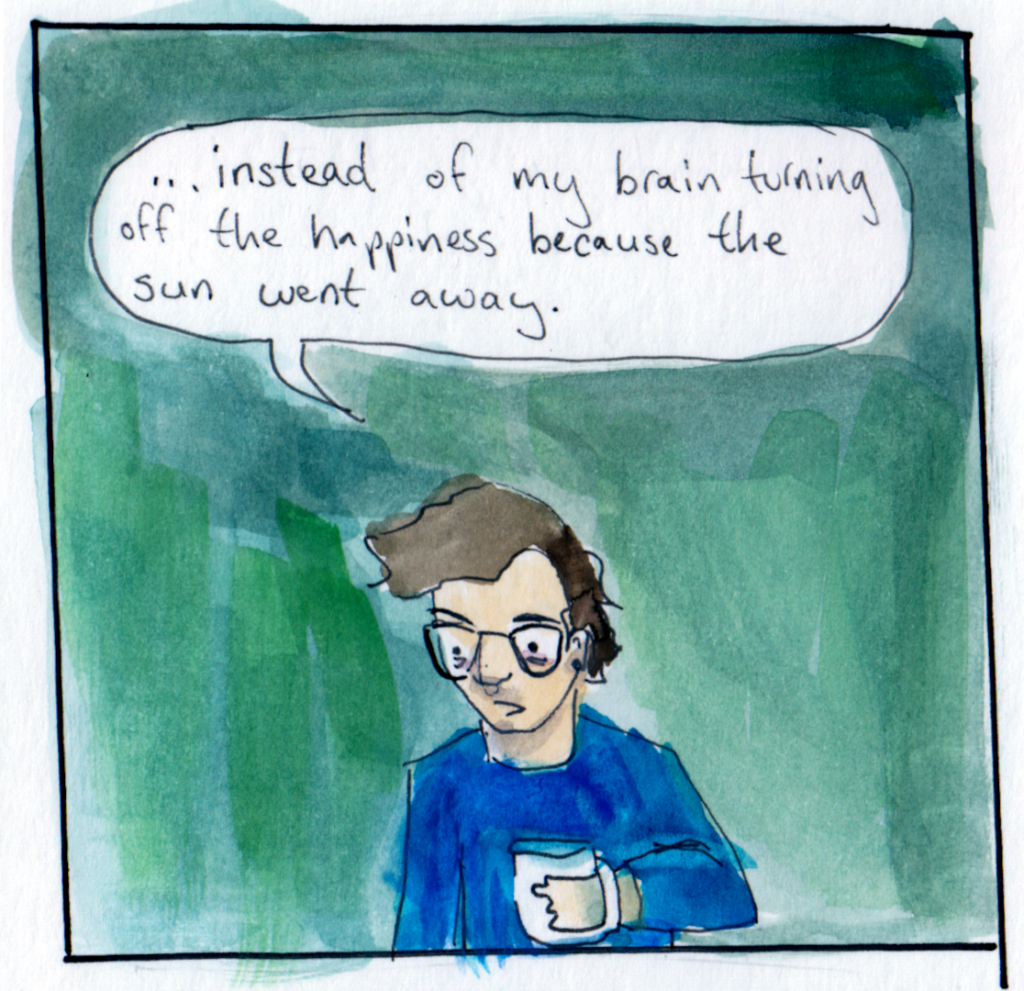
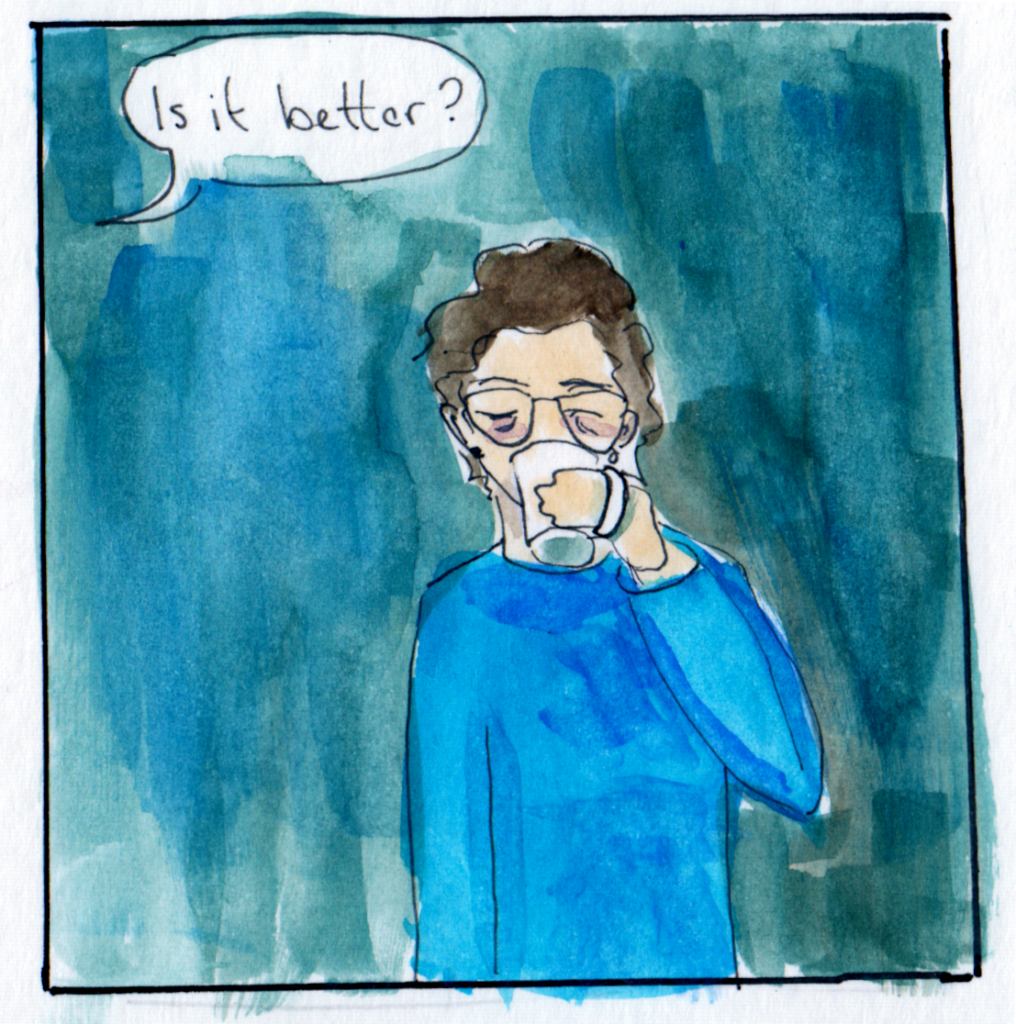
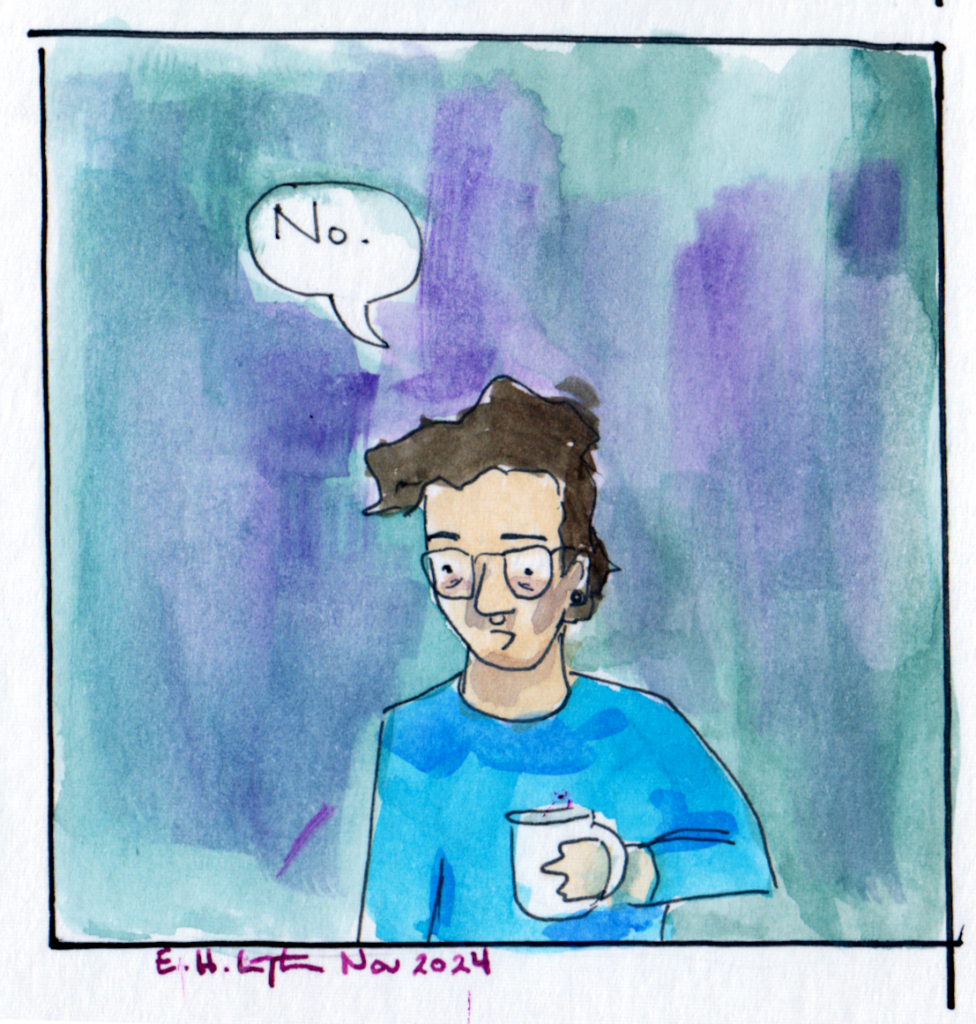
Here are all the books I read in 2024. I’m not going to rank them, but I’ll give brief reviews. I usually try to read the abbreviation of the year in books, so my goal for 2024 was 24 books. I read slightly more than that across many genres, although romance was the plurality.
Children’s/YA books
- The Dark is Rising, by Susan Cooper. Read aloud; I don’t think I have to convince anyone that this is an amazing book.
- The Amazing Maurice and His Educated Rodents, by Terry Pratchett. Read aloud; at times we were laughing too hard to go on, and really, what other endorsement is needed?
- Camp Damascus, by Chuck Tingle. Some excellent moments but ultimately too much Jesus for my tastes. Already lived all that shit by proxy growing up.
- Belle of the Ball, by Mari Costa. A pretty graphic novel with a big heart. Full disclosure: I met Mari Costa at the Lammys!
- The Golden Thread: A Song for Pete Seeger, by Colin Meloy. I may be biased because I’m a fan of both Colin Meloy and Pete Seeger, but this was delightful. (I never read it to the kids, though. Just saw it at back to school night.)
- The Boy Who Loved Math: The Improbable Life of Paul Erdos, by Deborah Heiligman. Too many words for a bedtime story, but my 3yo inexplicably loved it. The story is very cute, and Erdos was a loveable weirdo.
Romance (pairings and settings as noted)
- I’m So (Not) Over You, by Kosoko Jackson (M/M, contemporary). I hope Berkeley feels embarrassed by how dirty they did this poor book. Could have been good, but it was an entirely unedited mess.
- Take a Hint, Dani Brown, by Talia Hibbert (M/bi F, contemporary). For what it was, it was fine.
- Bisclavret, by KL Noone (M/M but one of them is a werewolf, middle ages?). A novella retelling the werewolf story “Bisclavret” by Marie de France. I usually think novella is not the best format for a romance, but this was charming. Full disclosure: I’ve been on panels with KL Noone a few times now at Rainbow Space Magic Con. (I don’t think she remembers me though.)
- A Marvellous Light, by Freya Marske (M/M, late Edwardian). Book 1 in the Last Binding series. The plot was fine and the writing was good.
- A Restless Truth, by Freya Marske (F/bi F, late Edwardian). Book 2 in the Last Binding series. The supporting characters were good.
- You Should Be So Lucky, by Cat Sebastian (M/M, 1960s America just pre-Kennedy). I am not interested in baseball, but this was a delight start to finish and a standout. The second in the Mid-Century New York series (I lost the Lammy to the first one).
- A Minor Inconvenience, by Sarah Granger (M/M, Regency). Don’t think too hard about the plot. Or the sex scenes. The setting was nice.
- Letters to Half Moon Street, by Sarah Wallace (M/M, Regency). A gentle epistolary novel with almost no plot and an interesting queernorm regency setting that nevertheless left me with a lot of questions.
- An Appreciation of Cats, by Des DeVivo (M/M, contemporary?). Another novella that I read. I got this one as an ARC.
- Oak King Holly King, by Sebastian Nothwell (M/M but one of them is an elf, early Victorian). A standout–set in 1844, with strong medieval undertones and a delightful episodic plot that draws on the story of The Green Knight. Full disclosure: I was on Sebastian Nothwell’s podcast (Right Here, Write Queer) and he was recently on mine.
- A Power Unbound, by Freya Marske (M/M, late Edwardian). Book 3 in the Last Binding series. I didn’t hate it. Also I liked the characters from A Marvellous Light a lot better here.
- The Nobleman’s Guide to Seducing a Scoundrel, by KJ Charles (M/M, Regency). This was a delight. I have to go read book one now.
- Scandal in Spring, by Lisa Kleypas (M/F, early Victorian). This was the third book in a row that I read where one character had a BIG TERRIBLE SECRET that got revealed at or after the 50% mark in the book and turned out to be eminently overcomeable, and I am so over it.
- Cutting It Close by Reese Knightley (M/M, contemporary). I kind of lost track of the number of (war) crimes committed by the ostensible heroes. This book is a reminder that I need to stop picking audiobooks by just grabbing whatever is listed under “available now.”
- Dead Egyptians by Del Blackwater (M/M but one of them is a ghost, Edwardian). More of a character study, but a really lush and intriguing one. TW for an assault that happens around the 75% mark. Full disclosure: I have met Del Blackwater a few times (she lives in the area).
- My Last Duchess, by Eloisa James (M/F, Georgian). I want to say that it doesn’t make sense to try to body-shame someone when the fashion is to wear panniers, but that really diminishes the amount of fun that this book was.
Literature and Scifi/Fantasy
- Matrix, by Lauren Groff. If you’re the oldest daughter, and you sometimes get given distasteful tasks, and you maybe feel the need to do a really, really superior job at everything, you will see your experience reflected here. This had so many good lines–the writing was really an amazing achievement.
- On Earth We’re Briefly Gorgeous, by Ocean Vuong. It was very good and also sad. Contained the single most stomach-turning scene I read (heard, I guess–I had this as an audiobook) this year, maybe ever.
- Interior Chinatown, by Charles Yu. This was amazing and everyone should read it. And give Charles Yu more money to write more books. A real standout (and I got B to read it too).
- No One Is Talking About This, by Patricia Lockwood. Part I was like having tw*tter slow-dripped into my ear. Part II made me cry.
- Space Opera, by Catherynne M. Valente. So amazing I immediately made B read it. Also a standout.
- Translation State, by Ann Leckie. A tricky book; not enough connection to the earlier Imperial Raadch novels and too much. Good but unsatisfying; I think it tried a lot of interesting things and I love it for that.
- Legends and Lattes, by Travis Baldree. The real magic rock was the friends we made along the way, I guess. This book managed to be very boring and also keep my interest, which feels like an achievement.
Nonfiction, Biography, and Memoir
- The Bomber Mafia, by Malcolm Gladwell. It’s all fun and games until Curtis LeMay firebombs Tokyo. (Of note, LeMay also introduced judo into the US and later was the VP candidate under George Wallace in 1968. Gladwell doesn’t mention either of these facts. I had to find them out by myself.)
- Cook County ICU: 30 Years of Unforgettable Patients and Odd Cases, by Cory Franklin. Franklin is honest to a fault and I find I like him a lot for it.
- A Molecule Away from Madness: Tales of a Hijacked Brain, by Sara Manning Peskin. Unfortunately this was reported stories focusing on the neurochemical underpinnings of various neurological issues rather than Oliver Sacks-esque first-hand case studies.
- On the Move: A Life, by Oliver Sacks. This was so delightful, and I’m glad he published it while he was still alive so no family members could stop him. (Would they? I don’t know. It was kinda scandalous. But also very good.) Key quote (not of the scandalous parts):
As soon as I could get away from work on Friday, I saddled my horse–I sometimes thought of my bike as a horse–and would set out for the Grand Canyon, five hundred miles away but a straight ride on Route 66. I would ride through the night, lying flat on the tank; the bike had only 30 horsepower, but if I lay flat, I could get it to a little over a hundred miles per hour, and crouched like this, I would hold the bike flat out for hour after hour. Illuminated by the headlight–or, if there was one, by a full moon–the silvery road was sucked under my front wheel, and sometimes I had strange perceptual reversals and illusions. Sometimes I felt that I was inscribing a line on the surface of the earth, at other times that I was poised motionless above the ground, the whole planet rotating silently beneath me.
- Cultish, by Amanda Montell. I don’t know that her thesis (that cults use in-group language to promote belonging and a sense of community) is all that surprising, but I learned some interesting stuff.
- The Commitment: Love, Sex, Marriage, and My Family, by Dan Savage. I don’t know if I should say, “Wow, the early 2000s were genuinely as bad as I remember thinking they were at the time,” or “Dan Savage is the most Gen X writer.” Now I’ve said both.
- The Boys of ’67: Charlie Company’s War in Vietnam*, by Andrew Wiest. A group memoir (biography? collection of oral histories?). This made me fucking cry. While driving.
- Boots on the Ground: America’s War in Vietnam, by Elizabeth Partridge. (Technically maybe YA nonfiction? oral histories woven together with bits of the larger historical record of the era, from the early ’60s through to the early ’90s.) I didn’t cry but only because I was running on the dreadmill at the time.
* Note–the company that committed war crimes in the village of Son My known as the My Lai massacre was also called Charlie Company, but that’s a different company. Because Army companies are named A, B, C, etc., and then referred to using the NATO Phonetic Alphabet, there’s lots of Charlie Companies.
Other Things I Read
- “Three Hundred Ramayanas: Five Examples and Three Thoughts on Translation,” by AK Ramanujan. In The Collected Essays of A. K. Ramanujan, Oxford: Oxford University Press, 2004, pp. 131-160. I love this essay so much I wrote my MA thesis about it. I love this essay so much we did a podcast on it.
- “The Dybbuk: The Origins and History of a Concept,” by Leonard J. Greenspoon. In olam he-zeh v’olam ha-ba: The World and the World to Come in Jewish Belief and Practice, Perdue University Press, 2017, pp. 135-150. This was really informational, and well-written to boot. I learned so much.
- “The Etymology of Condom,” by Zacharias P. Thundy. In American Speech, vol. 60, no 2 (summer 1985): pp. 177-179. This started as a joke about the etymology of “condiment” that got way out of hand.
Books and Other Works I Published
- Old Time Religion. This was a scary book to write. Dionysus in Wisconsin was received well by a small but enthusiastic coterie, and I didn’t want to disappoint them. Luckily the Lammy shortlist hadn’t come out yet when I released it in January, or I would have freaked out even more than I already did. I got fewer preorders for this book than I did for DIW, which was unpleasant, and although I offered ARC copies no one wanted one. On the production side, the book was beset by some last-minute problems with the cover, which were a real learning experience and did nothing for my stress level. Fortunately, it has been well-received and sold steadily! I don’t track earnings by book, but it has earned out at this point, and slightly faster than DIW did (eleven months instead of twelve).
- “Dous.” This was so fun to write. I did catch myself trying to decide if I’d unfairly leveraged an argument Spivak makes about the way women are oppressed in India in a context she would object to, and then decided that I was getting a little too serious about the philosophy side of things for a lighthearted short story. As far as I can tell only a few people bothered to read it, probably because I gave it a weird title (it makes sense if you’ve read OTR, I think). But that’s fine. I know a few people really loved it, and that means a lot to me.
- Troth. This was a fun book to write, a hard book to revise, and now that it’s done I am extremely happy it’s out in the world. The last few chapters made me very happy to write. I got a lot more preorders for this one than I did for DIW and OTR–as many as both of them combined, actually. I didn’t bother to send out ARC copies. How do you offer ARC copies for the third book in a series without cannibalizing your audience? But despite the lack of hype, it has sold very well, including the best first month sales of any of my books.
- “Vivienne.” I sold this to Asimov’s Science Fiction and I have the check stubs to prove it, but although I received galleys, it was not published in 2024. I don’t know exactly what the story is; selling it was quite a coup, perhaps the most high-profile sale I’ve ever made. Maybe it will appear in 2025. Keep an eye out.
- Em oi! 452, 453, and 454 (above). I have another comic that I sketched and inked and then set aside because I needed to focus on something else.
- Lazarus, Home from the War. I have written two and a half full drafts of this novel this year, I think. I am so excited to show it to people in 2025. It’s got so much cool stuff that I love–a guy trying to put himself back together! A Jewish neurologist! A really scary snake! It will be out in May 2025, so keep an eye out!

